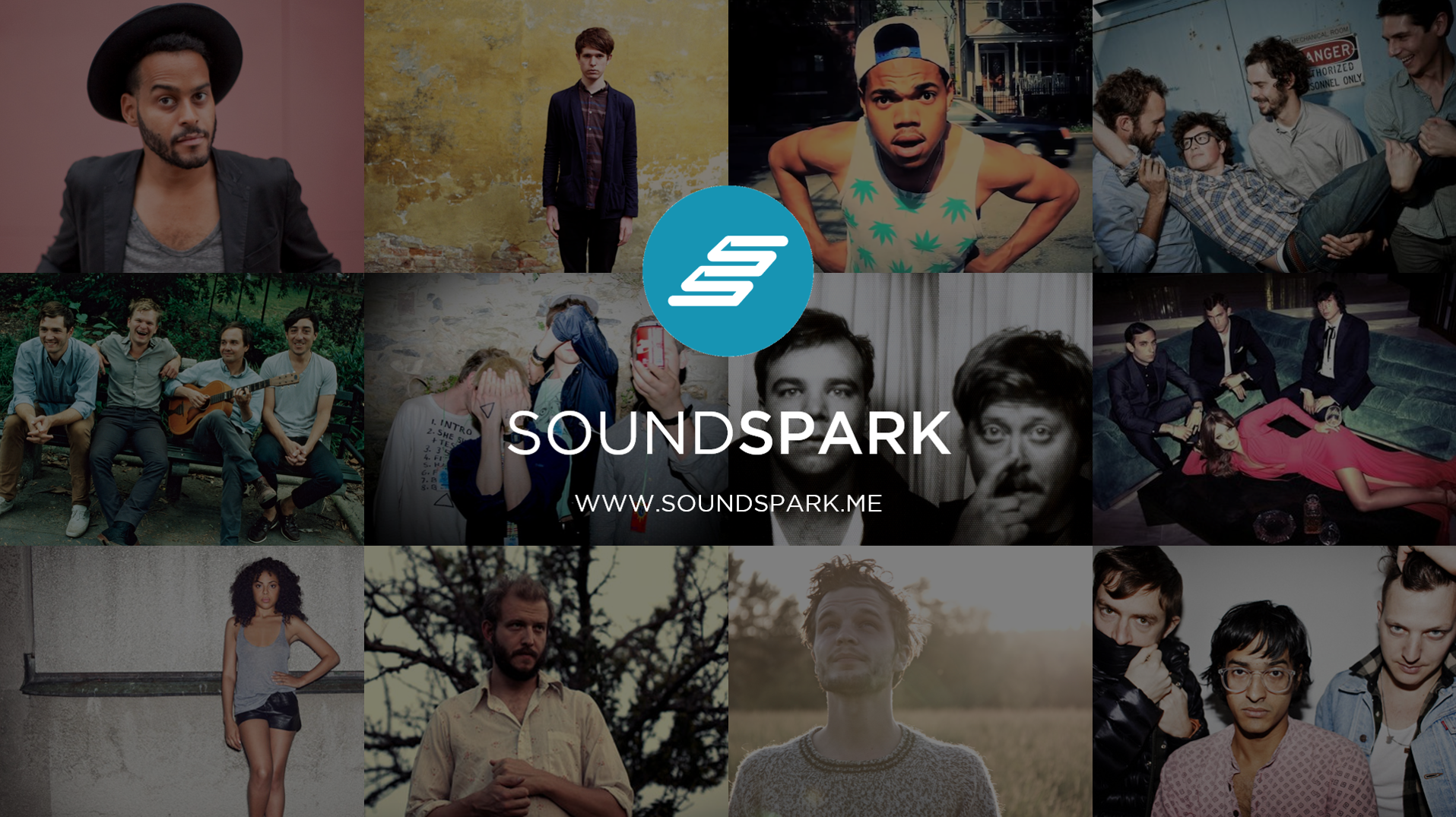“The last time I’ve gotten so excited working on something was when I was in a practice room with my band in high school,” says Christopher Nolte of TapTape (previously, SoundSpark), the new startup he co-founded with Ana Villanueva, a fellow classmate in the MIT Sloan School of Management. With TapTape (previously, SoundSpark), the pair has devised a way to help rejuvenate an ailing music industry: As buying CDs becomes obsolete and record labels lose money, TapTape presents a new business model that crowdsources investments in new musical talent, offering listeners a chance to “own” part of a record deal.
TapTape is the winner of this year’s $10K Creative Arts Prize, awarded every year to a team participating in the MIT $100K Entrepreneurship Competition finale. Recognizing the natural synergy between entrepreneurship and the creative industries, the creative arts prize seeds startups that incorporate an innovative use of art into their business plans. Judges included established MIT artists, alumni, engineers, executives, and entrepreneurs.
“There are few companies that have both a deep artistic vision while also having a compelling business model. But I think that’s exactly why the $10K Creative Arts competition is so important,” says judge Eran Egozy ’95, MEng ’95, a co-founder of Harmonix, the company behind the massively successful game Guitar Hero. “It’s certainly not easy, but it is exactly the kind of challenge that suits MIT students.”
Prior to enrolling at MIT, both Nolte and Villanueva, coincidentally, worked for the same management consulting firm Booz & Company — albeit in different countries — before finding themselves together in MIT Sloan’s entrepreneurship and innovation track. They joined forces last fall at MIT’s Hacking Arts, an annual hackathon that involves students of all disciplines pitching ideas for innovative new startups at the intersection of art and technology. Hacking Arts, Nolte says, is “where I realized I could find people to work with. That was awesome.”
Both students were looking for a way to marry their passion for the arts with their business acumen and entrepreneurial zeal. Nolte, who grew up playing the piano, saxophone, and guitar, would have gone to the Berklee College of Music had a chance to study international business not come up.
Villanueva grew up in a family of artists. “I came to MIT because it was the best place in technological entrepreneurship — that’s where I wanted to be — but I didn’t expect that there were going to be people interested in music and fashion,” Villanueva says.
After pitching their idea at Hacking Arts, Nolte and Villanueva worked on SoundSpark more during MIT’s Independent Activities Period (IAP), and then further developed the startup through their classes at MIT Sloan. In time, Nolte and Villanueva were joined by user experience designer Michael Mizono, technologist Eric William Lin, and MIT engineer Ben Schreck to round out the team. Last year’s creative arts prize winners — MIT Sloan alumni Kim Gordon and Shambhavi Kadam of the startup Depict — spurred the pair on during a class trip to Silicon Valley. Being at MIT, Nolte and Villanueva say, has opened many doors.
Their big break occurred when Lyor Cohen, former CEO of Warner Music Group, visited MIT. Intercepting Cohen en route to a brainstorming session in the Stata Center, Nolte and Villanueva delivered their brief elevator pitch. They impressed the mogul enough that he invited them to pitch the idea at his New York office. “He was looking for a new way to source and promote artists,” Nolte explains.
With music so easily and freely available today online, music lovers are not often willing to pay for recordings — leaving the industry less prone to gamble on new acts. SoundSpark offers a digital platform to more evenly distribute this financial risk by enlisting listeners as financial stakeholders. With SoundSpark, the label will co-invest in emerging artists with the fans, and, in turn, grant them a portion of the profits.
What TapTape does, essentially, is turn everyone into a micro-venture capitalist — helping listeners spot and invest in talent early, and reap the rewards should the artists succeed. In connecting artists to an avid listenership, the startup, in turn, also affords artists more creative freedom.
SoundSpark is different from other crowdsourcing outfits like Kickstarter or Indiegogo, the team says, because they bring together the power of record labels with the power of a dedicated fan base. Because the artists featured on the platform are already pre-selected by the labels, quality is more assured than on other sites glutted with funding proposals. In that way, SoundSpark aims to become a high-impact, high-profile crowdsourcing site, offering listeners the prospect of profit, bragging rights, and the chance to hitch their wagon to a rising star.
So what’s next for the fledgling startup? Riding high after their big win, the team plans to relocate to New York City for the summer to benefit from Cohen’s mentorship. Both turned down internships this summer at Spotify — an opportunity that once might have been considered a dream job. With its fixed salary and prospect of definite work at the end of the summer, Spotify represented a more secure path, but Nolte and Villanueva are not looking for staid stability. They want to invent the music world anew. “We said, ‘If we can’t take the risk now, we’re never going to take it,’” Nolte says. “If you’re not outside of your comfort zone, you’re not learning.”
The Arts at MIT are rooted in experimentation, risk-taking and imaginative problem-solving. For further inquiries, contact info@taptape.com

